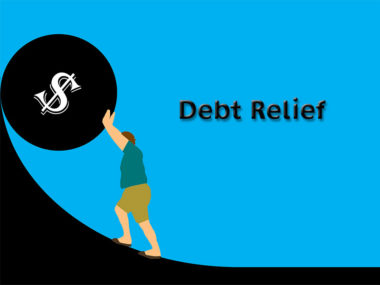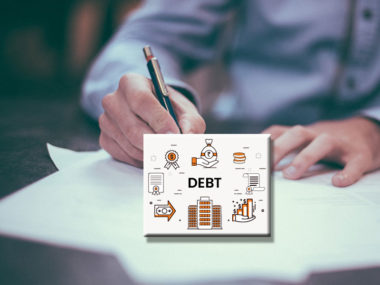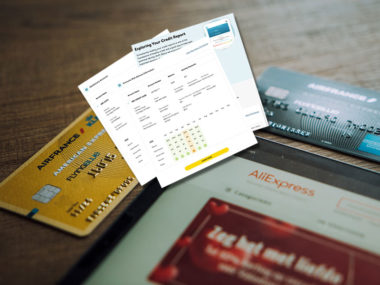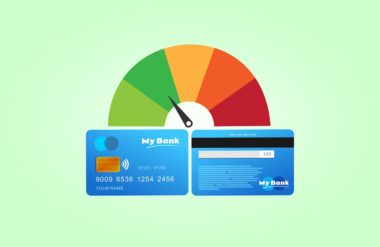If you’re nearing college graduation, recently graduated, or putting schooling on hold, you’re going to have to start making payments on your student loans. Before you panic, just know that there are options for almost every situation. You should know exactly when you have to start making payments and how much you’ll be paying each month. Let’s explore these topics as well as how paying off your student loans is actually beneficial to you and your credit score.
Table of Contents
Grace Period: When Do You Need to Start Making Payments on Your Student Loans?
It’s pretty common for lenders to start asking for payments after about six months of your graduation or suspension of schooling. This means that if you decide to stop going to school for any reason (even if it’s only temporarily), you’ll still need to make payments on your loans after six months.
In many cases you may even need to start making payments if you are considered a less than half-time student. Traditionally this means being enrolled in fewer than six credits. However, this could differ depending on your school’s regulations. So, always make sure to stay on top of policies and changes while you are enrolled.
What Does My Monthly Payment Consist Of?
You should have access to your loans online at anytime. Just like when you signed up for the FAFSA, your lender will have you sign up for a secure account through their website. This is usually a central hub where you can make payments and see a breakdown of exactly what you are paying each month.
It’s fair to say that across the board most loans come with your initial cost of principle, tacked on interest, as well as fees. Principle means the base amount of funds that you borrowed without any fees or interest. This number will equal the exact amount that you borrowed from your lender — nothing more, nothing less.
Then, you will have interest. We’ve talked about what you need to know about interest on your loans before. Here’s a brief overview: if you have an unsubsidized loan, that means the government is not going to pay interest on your loan on your behalf while you are in school. As such, once you graduate, you’ll be responsible for paying all of that interest that accrued while you were receiving your education. If you accepted a subsidized loan, the government did pay for your interest while you were in school. Although, you will be responsible for all interest from graduation until you make your final student loan payment.
How Much Should I Pay?
When your lender asks you to start making payments, they will usually have a minimum number in mind based on how much you currently owe. You will be able to see when your next payment is due and how much they expect you to pay each month.
With that being said, I suggest that you pay as much as you can possibly afford without going broke. I’m talking about disposable income. If you have extra money leftover at the end of the month that would probably be spent on stuff that you don’t need (no judgement here, we all do it even when we know better) — use it to pay your student loans. If you can afford to pay more, even if it’s just ten dollars, it all helps in the end.
This is beneficial to you for a couple of reasons. The first is the fact that, the more money you pay right away, the quicker you’re cutting down on the amount of principle you are responsible for. Loans work like this: interest is charged on the total amount of principle you have left. So, when you go to make a payment, often you are just paying off the interest you owe and maybe a small portion of the actual base principle amount. However, if you pay extra each month, you’re actually digging into that principle amount a little bit month over month. This means that you are no longer being charged interest on the principle that you just paid. You’re essentially saving yourself money in the long run by paying a little bit more right now.
As a result of this approach, you’re not only saving money on the interest that you would have paid, but you’re also paying off your loan earlier than you would have otherwise, which is really the end goal, right?
What If I Can’t Make My Payments?
It is really, really important that you make your student loan payments on time. I cannot express how important it is. I know that it’s horribly un-fun to have to think about paying off your college debt for 20 years, but there are actually some great bonuses just for being a responsible adult and paying off your student loans on time. Namely, your credit score is positively impacted each time you make a payment on time. Doing this consistently over the course of 20 years will give you some awesome credit to work with when you want to make larger purchases, like a car or home.
Yet, sometimes life happens. If you’re not able to make the minimum payment that your lender is asking for, get in touch with them right away. If you do nothing and make no payments, not only will your credit be negatively impacted, but your loans will go into default. If your loans are in default it could become a legal issue. Your wages could be garnished each month or other possessions could potentially be repossessed. Instead, are a few options for repayment that you may be able to take advantage of.
Check with your lender to see what monthly payment options are available to you. Depending on your annual income, you may be entitled to a lower monthly payment. Another option could be to extend the life of your loan, which could be giving you 30 years to pay it back instead of 20, for example.
Forbearance and deferment are two other options for those who are unable to make any sort of payments on their student loans. The difference between the two is that during deferment, you do not have to pay interest on your loan while your student loan payments are on hold. With forbearance you do have to pay interest on that time. For this reason, it can be easier to get a forbearance if you are simply having some financial troubles for a few months. Traditionally, it is a little bit harder to get approved for a deferment, but if you’re having medical issues, looking at a possible military deployment, or other serious circumstances it’s always a good idea to look into both options.
Coming out of college with thousands of dollars in debt is undoubtedly stressful, but keep in mind that there really is no negative to having educational debt as long as you make your payments on time. Set up a payment plan that is right for you, make the payments on time, and watch your credit score rise. If you decide to buy a car or home later, you’ll be happy that you did. In addition, If you decide to pay a little extra each month, you’ll cut down on the cost of interest you have for the remainder of your loan. Not to mention, many loans will offer forgiveness if you have a history of paying on time. After a certain number of years paying on time (usually around 20 more or less) you may be forgiven for the remaining cost of your loan. That’s a win-win!
For more tips and guides, visit our student finance learning center. For more information on how student loan payments, or lack thereof, can affect your credit score, visit our credit score resource center.
Image source: https://www.flickr.com/





